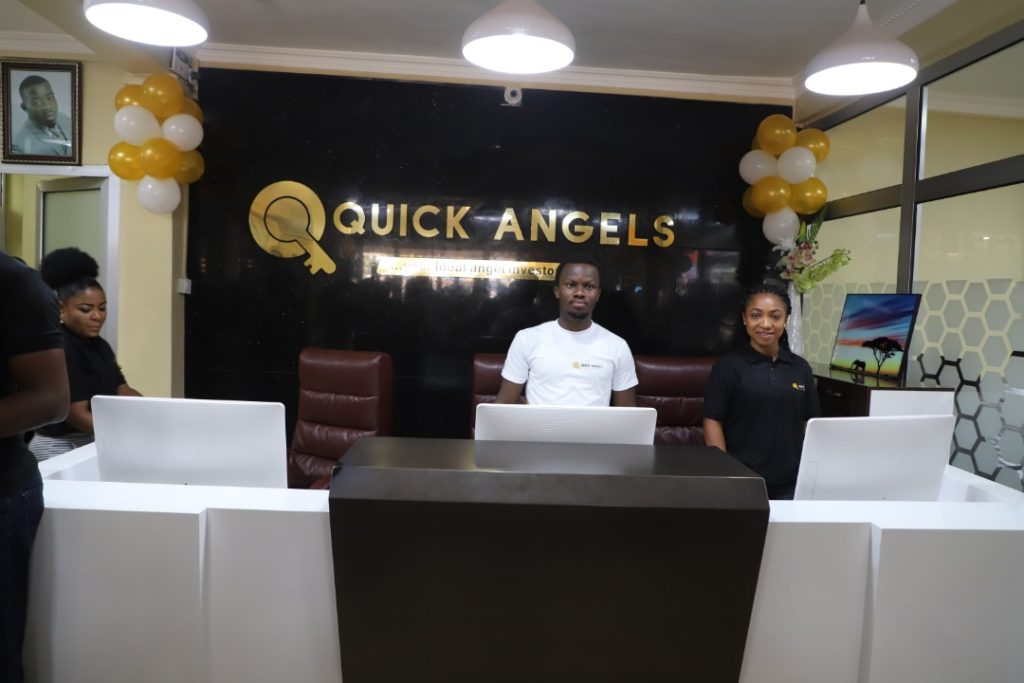How to Find Investors for Your Startup
Andrew Rinaldi, the co-founder of the all-in-one, SaaS-delivered cybersecurity platform Defendify, knows all too well what it takes to obtain startup funding. Rinaldi and Defendify recently secured $1.6 million in pre-seed funding to help get their business up and running. Defendify secured the money from private investors with participation from the Maine Technology Institute and early-stage cybersecurity industry investor 3dot6 Ventures. In this interview with Chad Brooks, he shares his deep wealth of experience.

Q: How do you know when it is time to raise funds?
A: Really, it’s just math. Through business planning — which, yes, we all have to do — you figure out what you’ll need to get started and grow. And with that comes identifying the funding required to make that a reality.
If you don’t have the requisite funding readily available, it’s time to look to other people. As things progress, your position will absolutely change over and over, but creating some early projections and forecasting — even if rough — paints the picture.
Q: How do you know you are ready for an investor, versus just asking family and friends for money?
A: You’ll need to extend the conversation to new resources just as soon as you’ve exhausted friends’ and family dollars, or if they’re simply aren’t any friends and family options for you.
The other primary driver for going beyond friends and family is for access to new opportunities and resources. Some call it “smart money,” where whoever is helping fund your cause also brings their expertise, networks and often vast resources to the table. That, together with the short- and long-term financial impact, can be a major catalyst for your business and is the perfect time to think beyond friends and family. [Are you actively seeking financing options for your business? Check out our reviews and best picks of business loans.]
How to find the right investor for your startup
Q: How do you find potential investors?
A: It’s all about networking. Start with family and friends, then move to your professional network. Who do they know that might be interested? … Through the course of that outreach and sharing your story over and over, you are then introduced to more and more people beyond your network, who I call your extended network, and eventually, find prospective investors that might align. Yes, you can conduct cold outreach as well, and we all do, but it’s the power of your network — and extended network — that nets you the most effective relationships.Q: How do you find potential investors?
Q: How do you know if an investor is right for you and your business?
A: There has to be alignment, and I would suggest that starts with your core values. It’s not all that different than how you might seek employees or partners that believe in you and your vision. They can’t just have a basic business or financial goals — they have to have a mindset and operate in a way that works for you and with you.
I’ll also say it’s really important to pay attention to your gut. Sometimes you just know innately if an investor is a good fit or not, and that absolutely should be taken into consideration.
Q: What should your proposal to an investor include?
A: I would say to look at a proposal to an investor more like you would a marriage than a business. Yes, you have to go through the practical motions and economics that make for a good fit, but in the end, it’s mostly about having a healthy, mutually beneficial relationship that can stand the test of time. If you can’t overcome adversity and subjectivity and ride through the trials and tribulations together, you won’t be successful — no matter how good an idea or product you might have.
Q: Once you secure an investment, what role does the investor play in your business?
A: It all depends on who the investor is. Some will be totally hands-off and just check in casually, perhaps no more than chatting at the backyard barbecue or over a coffee or beer. That’s commonly where family and friends fall. Others will want to dig in more regularly or even participate as operators, not only to understand how the business is progressing but to see where they can help.
The good news is, everyone with a vested interest genuinely wants to help. Building a business from the ground up requires all the help you can get. It may come in many different forms — financial, networking opportunities, new customers and partnerships, constructive criticism, or candid advice. Whatever the case, it’s always worth listening (and remember, you don’t have to do everything everyone asks of you). These are people who want you to succeed, believe in you, and care about you. One thing is for sure — you’re in it together.

Q: What are the benefits of getting funds from an investor versus taking out a traditional business loan?
A: Traditional business loans aren’t usually an option for early-stage startups. While some lenders promote working with startups, it’s rare they actually do. I recommend exploring nontraditional loan opportunities.
For example, we have an amazing relationship with the Maine Technology Institute, which fuels innovation by providing technology development loans with preferable terms to early-stage companies. Their goal isn’t to run up the bill with interest or lock you in for the day you go public, [but] rather see you through to success and generate local jobs and economic impact. Those kinds of opportunities are well worth pursuing and often more fruitful.
The primary benefit of funds from investors is availability. Investors are willing to bet on you, especially early on, in ways the banks or lenders will not and may not for many years to come. And once convinced to invest, they can move quickly to infuse capital into the business, which can be a huge benefit.
That includes the potential for follow-on funding when you need additional dollars. Now, that doesn’t mean investor funds are simply readily available out there in the world. Actually, it’s just the opposite. Raising funds from investors is a full-time job on top of your full-time job of building and running the business.
Rapid-fire questions
Q: What piece of technology could you not live without?
A: The most important thing about running and scaling a healthy business is effective communication. Slack is a great tool for everything from regular check-ins to timely company updates and even sharing a funny story or joke. Slack doesn’t replace in-person communication or meetings — nothing can — but it can help promote ongoing chatter, transparency, and visibility while minimizing interruptions and interference.
Q: What is the best piece of career advice you have ever been given?
A: Many years ago, when I was building my first business, one of my longtime mentors introduced me to the notion that I should stop working “in the business” and start working “on the business.” I hadn’t ever thought of things that way, but once I did, it changed my whole perspective.
Now it seems so obvious; however, the truth is we all get caught up “in the business” to varying degrees. This advice not only resonated when I first heard it but is something I come back to each and every day.
Q: What’s the best book or blog you’ve read this year?
A: I really enjoyed One Bullet Away by Nathaniel Fick (who happens to also now be a leading cybersecurity executive). On one hand, [it’s] an intense and detailed journey taking you through the harsh realities of war and military life, [and] at the same time a tremendous and thoughtful story about leadership and accountability.
Next up? Looking forward to the July release of The Fifth Domain: Defending Our Country, Our Companies, and Ourselves in the Age of Cyber Threats, co-authored by one of the key advisors here at Defendify, Robert Knake, industry thought leader and former White House cybersecurity director.
Q: What’s the biggest risk you’ve taken professionally? Did it pay off?
A: Moving to Portland, Maine. Building my past business in Boston for many years, my wife and I would occasionally escape the city for weekend trips north. I’ve had the good fortune of traveling extensively in my life and couldn’t believe all that Portland and Maine had to offer, and just a couple of hours away. So, when I looked beyond the amazing restaurants, fascinating culture, great schools and outdoor life, I was pleasantly surprised to discover a sprouting startup, tech and creative community.
It’s no secret Maine hasn’t historically been considered a center for business impact. So, betting on Portland was a huge risk. But it’s paid off big. You’d be absolutely amazed at the people and resources that are around. Turns out it’s not all lobsters and potatoes.
There are a ton of very smart and uber-successful people in Maine, including a rapid influx of talent migrating away from the ever-increasing cost of living in big cities like Boston and New York. If anyone out there is considering taking the same risk and seeing how Maine can pay off, I’m more than happy to share the secret.
Charles Rapulu Udoh

Charles Rapulu Udoh is a Lagos-based Lawyer with special focus on Business Law, Intellectual Property Rights, Entertainment and Technology Law. He is also an award-winning writer. Working for notable organizations so far has exposed him to some of industry best practices in business, finance strategies, law, dispute resolution, and data analytics both in Nigeria and across the world.








